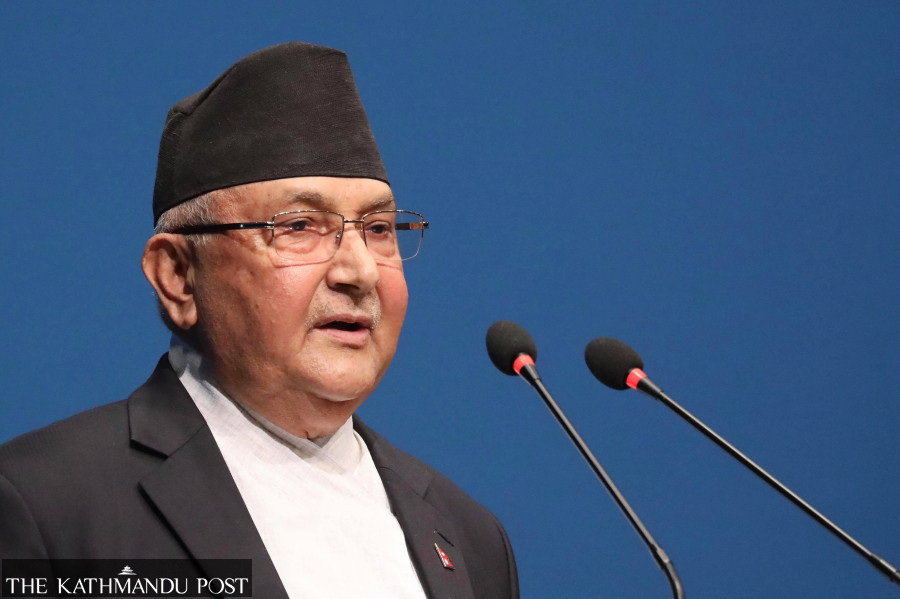Editorial
Why go to China?
There is no point in PM Oli jetting off to Beijing if he can’t take Nepali Congress into confidence.
Prime Minister and CPN-UML Chair KP Sharma Oli is not someone who minces his words. So when Oli was asked at the recent Kantipur Conclave whether he was worried about visiting China before going to India, it was interesting to see him struggle for the right words. He eventually said something along the lines that it is hard to discern which of the two neighbours is more important and should be his first port of call. Just so that the Indians are not spooked, he added “our relations with India are deep, historical, based on culture and tradition, and predate the formation of modern states.” Ever since he became prime minister around four months ago, PM Oli has been desperately trying to get an invite from New Delhi. This was why he had sat on an earlier offer to visit China. But when he saw that New Delhi was in no mood to invite him, Oli decided to visit Beijing first. Perhaps it was also a not-so-subtle signal to India that if it is not ready to engage with him, he will not be afraid to sidle closer to China.
Balancing India and China would have been tricky for Prime Minister Oli irrespective of the kind of coalition he led. But as the head of a government where he is the prime minister but not the leader of the biggest party presents him with unique challenges. During his 2016 China trip following the Indian blockade, both the electorate and most political parties were strongly in favour of greater engagement with the northern neighbour. But this time, even his main coalition partner does not want him to sign any consequential agreements with China. The Nepali Congress says Nepal should not accept any loan under the Belt and Road Initiative. Rather than sign new agreements, it is in favour of asking the Chinese to follow through on their previous pledges. In other words, short of getting the Chinese to waive off the loan for the Pokhara International Airport—which, though a very long shot, could be a huge coup for the prime minister—Oli will struggle to portray his China visit as a success. If there can be no domestic political mileage for Oli, why go to China and risk losing face at home, even some UML leaders are asking?
Whether a Nepali prime minister visits New Delhi or Beijing first, it should be up to Nepal to decide. That is not a big issue. What is more of a concern is that even when our prime minister embarks on a state visit to China, domestic political calculus rather than national interest will guide his decisions. So far, neither is the Congress ready to give him more of a leeway in negotiating with the Chinese nor is the UML in a place to say that it will do no important business with China. In the latter event, the Beijing visit will be reduced to a formality even before Oli embarks on it. This is not how coalitions work. How can people trust the government with anything if its constituent parties cannot even agree on how to deal with Nepal’s two most important international partners? And what does it say about the executive authority of the prime minister? The ruling coalition needs to immediately sort out its foreign policy mess before the country suffers an irreparable loss of trust abroad.




 13.12°C Kathmandu
13.12°C Kathmandu














